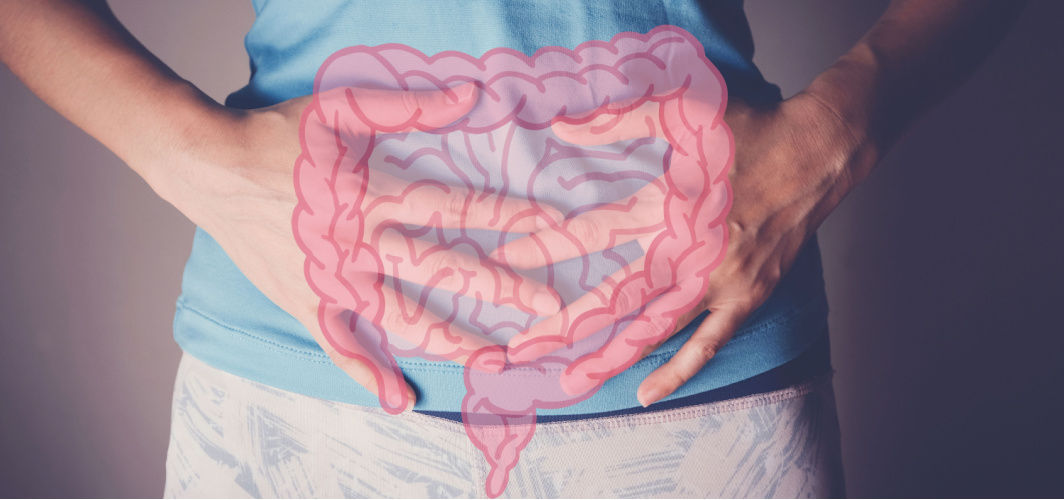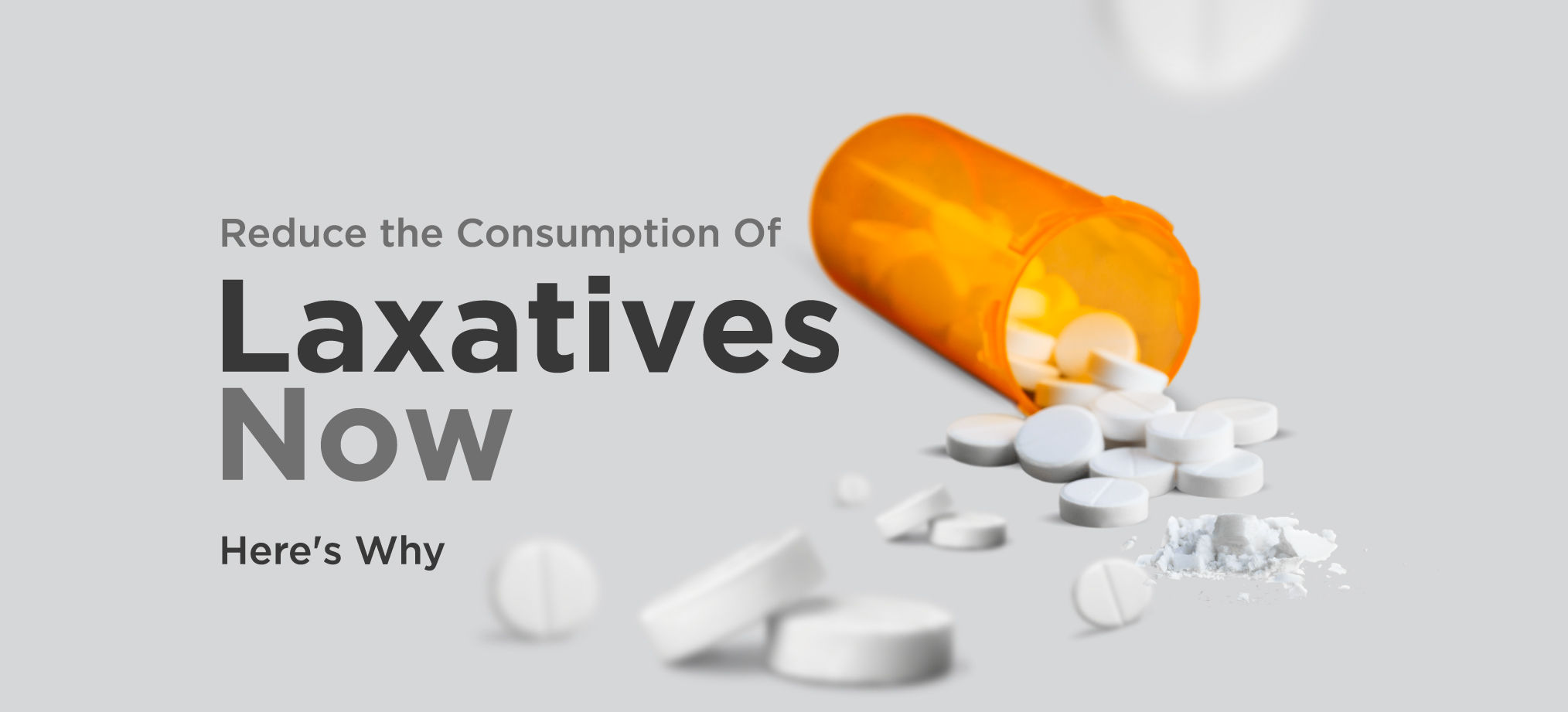Digestive Health
5 Most Common Digestive Disorders Explained
8 min read
By Apollo 24/7, Published on - 15 February 2021, Updated on - 12 March 2023
Share this article
2
15 likes

A healthy digestive system plays an essential role in the well-being of the entire body. The system is responsible for breaking down foods into nutrients and absorbing them into the bloodstream. The nutrients supplied by the digestive system are used by the body for various purposes such as energy production, growth, and cell repair. The system is also responsible for expelling the waste products from the body.
Given the nature of its biological functions, the digestive system is prone to malfunction. Poor lifestyle, diet, stress, and various other factors can make it susceptible to various disorders. Chronic constipation, diarrhea, acid reflux or GERD, lactose intolerance, and irritable bowel syndrome are some of the disorders that can adversely affect the digestive system. In order to protect the digestive system against these disorders, it is important to know more about them in detail.
1. Chronic constipation
Chronic constipation refers to irregular bowel movements that can persist for several weeks or longer. Generally, the condition is described as having fewer than three bowel movements per week. It is one of the most common digestive disorders globally.
Symptoms of chronic constipation include:
- Painful bowel movements
- Having dry and hard stools
- Straining to pass stools
- Feeling as if there is a blockage in the rectum
Causes of chronic constipation
Chronic constipation can be caused by multiple factors - lifestyle, diet, and medical conditions.
Lifestyle and diet
- Low intake of fibrous foods
- Dehydration
- Low physical activity
- Stress
- Resisting the urge to pass stool
Medical conditions
- Irritable bowel syndrome (IBS)
- Intestinal obstruction
- Lazy bowel syndrome
- Diverticular disease
- Endocrinal disorders like hypothyroidism (underactive thyroid gland) and diabetes
- Structural deformity in digestive tract (fistula, imperforate anus, volvulus, etc.)
- Neurological disorders like MS (Multiple Sclerosis), Parkinson’s disease, and stroke
- Colon cancer
- Pregnancy
Certain OTC and prescription medications such as NSAIDs (non-steroidal anti-inflammatory drugs), antidepressants, blood pressure medicines, etc. can also cause constipation.
How to prevent chronic constipation?
It may not always be possible to prevent constipation. This is especially true when it is caused by an underlying medical condition. However, experts say that most cases of mild-to-moderate constipation can be prevented and managed. Self-care tips that may help prevent or relieve constipation are:
- Eat more high-fiber foods such as oats, quinoa, chia seeds, etc.
- Increase levels of physical activity
- Drink plenty of water and other hydrating fluids
- Practice stress management techniques such as meditation, breathing exercises, etc.
- Never resist the urge to pass stool.
2. Diarrhea
Diarrhea is a condition that is characterized by loose or watery stools and a more frequent urge to have a bowel movement. It is one of the common digestive problems. Depending on the underlying cause, diarrhea can be chronic or acute.
Some of the most common symptoms of diarrhea include:
- Frequent urge to pass stool
- Loose or watery stools
- Nausea
- Bloating
- Pain in the abdomen
- Abdominal cramps
More serious symptoms of diarrhea include:
- Severe pain
- Fever
- Vomiting
- Blood in stool
- Weight loss
Causes of diarrhea
The most common cause of diarrhea is intestinal or stomach infection (viral gastroenteritis). However, diarrhea can also be caused by:
- Allergic reactions to certain foods
- Bacterial infection (food poisoning)
- Intake of foods that can upset the digestive system
- Medications
- Laxative abuse
- Alcohol abuse
- Overactive thyroid
- Celiac disease
- Irritable Bowel Disease (such as Crohn’s disease or Ulcerative colitis)
- Certain cancers
- Radiation therapy
How to prevent diarrhea?
Certain types of diarrhea, especially those triggered by some medical condition, can be difficult to prevent or avoid. Still, there are measures that an individual can take to prevent or reduce the likelihood of having diarrhea.
- Avoid contact with infection-causing germs, especially when traveling
- Practice good hand hygiene
- Serve meals immediately after cooking
- Store leftovers in the refrigerator
- Regularly clean the places where food is cooked and served
- Get vaccinated for rotavirus infection.
Recommended Read: Could Microscopic Colitis Be the Cause of Chronic Diarrhea?
3. Acid reflux or GERD
Acid reflux is a common digestive problem that occurs when the stomach acid pushes up into the food pipe (esophagus). Heartburn, a painful and burning sensation in the lower region of the chest, is the characteristic symptom of acid reflux. When acid reflux occurs more than twice per week, the condition is diagnosed as gastroesophageal reflux disease (GERD).
Potential and long-term complications of acid reflux or GERD include inflammation in the esophagus (esophagitis), narrowing of the esophagus (esophageal stricture), permanent damage to the esophagus (Barrett’s esophagus), and esophageal cancer. Other less severe complications include chronic cough, breathing issues, tooth erosion, asthma, etc.
Some of the most common symptoms of acid reflux are:
- Heartburn (a burning sensation in the chest)
- Sore throat
- Sour or metallic taste
- Difficulty in swallowing food.
Causes of acid reflux or GERD
In human beings, there is a ring-like muscle called the lower esophageal sphincter (LES) that connects the stomach to the esophagus. In healthy individuals, the muscle relaxes and opens when swallowing food and closes afterward. It doesn’t allow reverse movement of food and acidic juices from the stomach into the esophagus.
Acid reflux or gastroesophageal reflux occurs when the LES becomes weak or dysfunctional. When LES becomes weak, the stomach acid is able to squeeze through the opening and enter the esophagus.
There are certain factors that can increase the risk of acid reflux or GERD. These include obesity, hiatal hernia (a condition in which the top of the stomach bulges into the muscle separating the chest cavity from the stomach), connective tissue disorders, and pregnancy.
Other factors that can worsen symptoms of acid reflux or GERD are regular intake of large meals, high intake of fried or fatty foods, smoking, drinking certain beverages such as coffee, cola, and alcohol, and medications such as aspirin or ibuprofen.
How to prevent acid reflux or GERD?
It is possible to reduce the risk of Acid reflux or GERD by following a healthy lifestyle and diet. Some of the scientifically proven lifestyle and dietary changes include:
- Avoid eating large meals
- Maintain a healthy weight
- Wear loose-fitting clothes
- Quit smoking
- Chew gum
- Don’t go to bed immediately after having a meal
- Elevate the head of the sleeping mattress or bed
- Limit intake of certain foods and beverages such as fried foods, coffee, citrus juices, raw onions, chocolate, mint, tomatoes, garlic, alcohol, and carbonated drinks.
4. Lactose Intolerance
Lactose intolerance is a digestive disorder in which the body is unable to digest a type of sugar called lactose. The sugar is primarily found in milk and other dairy products. The condition is also referred to as lactose malabsorption. Although the condition is not associated with any serious complication, its symptoms can cause discomfort.
Symptoms of lactose intolerance include:
- Feeling sick
- Bloating
- Pain or cramps in the abdomen
- Diarrhea
- Nausea or vomiting
- Flatulence
Causes of lactose intolerance
Lactose intolerance is caused when the small intestine is unable to produce an enzyme called lactase. The enzyme is responsible for breaking down and digesting lactose. Due to a lack of enough lactase, the undigested lactose enters the colon (large intestine). The bacteria present in the colon interacts with the undigested lactose and causes the symptoms of lactose intolerance.
Increasing age, disorders affecting the small intestine (Crohn's disease and celiac disease), and certain cancer treatments are some of the factors that can increase the risk of lactose intolerance in adults. In infants, premature birth can cause temporary lactose intolerance.
How to prevent lactose intolerance?
It is not possible to prevent lactose intolerance. However, the symptoms of lactose intolerance can be prevented by reducing the intake of milk and other dairy products. People with lactose intolerance can develop a deficiency of calcium, vitamin D, and protein. Such people should increase their intake of foods that are naturally high in these nutrients.
5. Irritable Bowel Syndrome (IBS)
Irritable bowel syndrome (IBS) is a chronic digestive disorder that is characterized by symptoms such as abdominal pain and changes in bowel movements (constipation, diarrhea, or both). The condition is referred to by several names such as spastic colitis, nervous colon, mucous colitis, and IBS colitis.
Although the condition affects the large intestine, it does not cause any significant damage to it. IBS is not associated with any serious health complications.
Symptoms of irritable bowel syndrome include:
- Bloating
- Abdominal pain
- Cramping
- Diarrhea
- Constipation
- Mucous in stools
Most people with IBS experience only mild-to-moderate symptoms.
Causes of IBS
So far, health experts have been unable to determine the exact cause of IBS. However, certain factors are believed to play a role. Some of these factors include:
- History of a severe bout of diarrhea caused by a viral or bacterial infection
- Exposure to stressful events in childhood
- Malfunction in the intestinal muscles
- Changes in the gut microbes
- Abnormalities in the nerves in the digestive system
How to prevent IBS?
Currently, it is not possible to prevent or treat IBS. However, the symptoms of IBS can be managed to improve the quality of life. Certain changes to lifestyle and diet can help relieve the symptoms of IBS to a great extent.
- Avoid foods that trigger symptoms
- Eat smaller meals
- Eat more high fibre foods
- Avoid caffeinated and alcoholic beverages
- Exercise regularly
- Get enough sleep
- Manage stress.
Recommended Read: Differences: Irritable Bowel Syndrome and Inflammatory Bowel Disease
Conclusion
The human digestive system performs multiple functions inside the human body. However, its functioning can be adversely impacted by these digestive disorders. While it may not always be possible to prevent or treat these disorders, following a healthy lifestyle and diet will certainly help manage the symptoms and reduce the risk of complications.
Talk to a gastroenterologist if you have any questions related to digestive health.
Digestive Health
Leave Comment
Recommended for you

Digestive Health
Farting: Is It Beneficial?
Flatulence refers to the release of excessive gas from the stomach and intestines. It is your body signalling the optimal absorption of nutrients within your digestive system. Having said that, farts that smell nasty indicate digestive issues.

Digestive Health
Leaky Gut Syndrome: Causes, Symptoms, Tests and Treatment
Learn about leaky gut syndrome, a condition where the lining of the intestine becomes permeable, allowing toxins and bacteria to enter the bloodstream. Know its causes, symptoms, and effective treatment options.

Digestive Health
Regular Use Of Laxatives Can Increase Your Risk Of This Brain Disease By 50%
According to several researchers, regular use of laxatives can increase the risk of dementia by more than 50%. Laxatives can reduce the barrier function of our brain which can lead to a stroke, a known risk factor for dementia. Hence, it is advised not to use off-the-counter laxatives without consulting a gastroenterologist.
Subscribe
Sign up for our free Health Library Daily Newsletter
Get doctor-approved health tips, news, and more.
Visual Stories

Hidden Health Benefits in a Bowl of Salad
Tap to continue exploring
Recommended for you

Digestive Health
Farting: Is It Beneficial?
Flatulence refers to the release of excessive gas from the stomach and intestines. It is your body signalling the optimal absorption of nutrients within your digestive system. Having said that, farts that smell nasty indicate digestive issues.

Digestive Health
Leaky Gut Syndrome: Causes, Symptoms, Tests and Treatment
Learn about leaky gut syndrome, a condition where the lining of the intestine becomes permeable, allowing toxins and bacteria to enter the bloodstream. Know its causes, symptoms, and effective treatment options.

Digestive Health
Regular Use Of Laxatives Can Increase Your Risk Of This Brain Disease By 50%
According to several researchers, regular use of laxatives can increase the risk of dementia by more than 50%. Laxatives can reduce the barrier function of our brain which can lead to a stroke, a known risk factor for dementia. Hence, it is advised not to use off-the-counter laxatives without consulting a gastroenterologist.